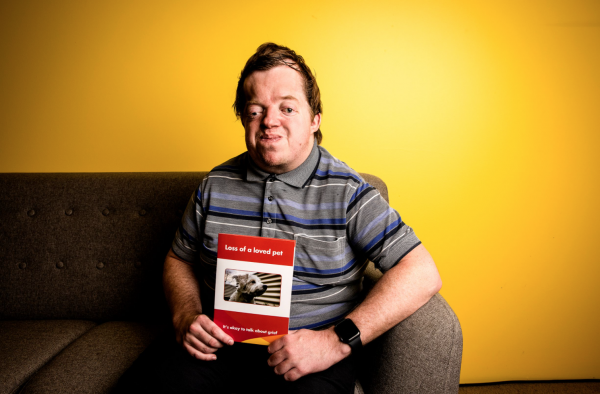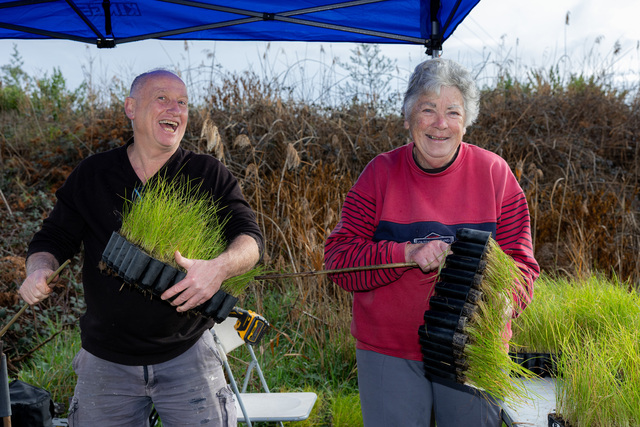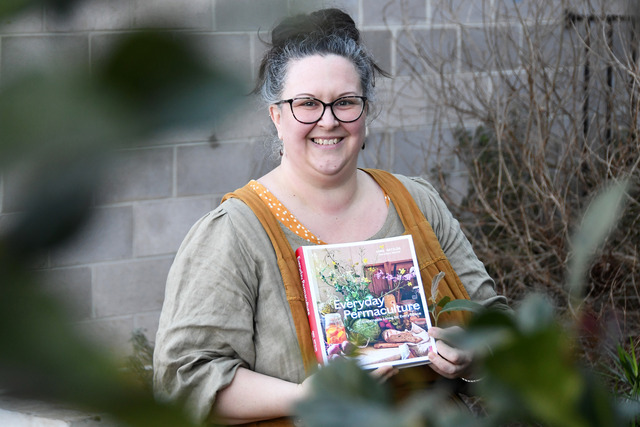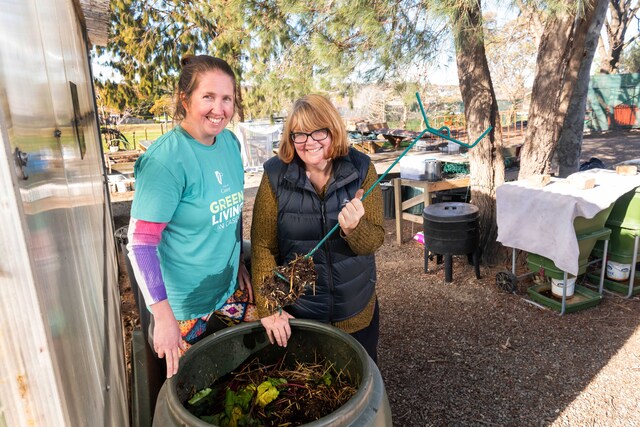After experiencing the pain of losing his dog, Gizmo, Cranbourne resident and disability self-adovcate Greg has put pen to paper to share his story to help people with intellectual disabilities cope with grief.
It’s part of a partnership between disability advocacy organisation Valid, the Department of Health and Human Services and Palliative Care Victoria, to provide resources to support people with intellectual disabilities in some of the most dreadful of all human experiences.
The project has resulted in a series of short booklets, all written in Easy English and accompanied by clear images, dealing with loss of various family members.
Greg worked on the Loss of a Loved Pet booklet, which features images of his late dog Gizmo.
“I could not imagine how painful it was,” Greg said of the loss of Gizmo.
“It was actually the first time I cried in public in my whole adult life.”
Writing the booklet helped him to turn that grief into something positive, but Greg said it was a challenge as he was still going through his own grieving process.
He and the team ensured the books were as accessible as possible, with Easy English making it easier for readers to understand.
Greg said he felt the project was an important one.
“When you talk about [grief] or when you get help about it, it really takes so much grief or pain away from you,” he said.
“When I was writing and talking about it, it made me feel so much better … it makes me feel like people out there understand what I’m going through.”
He said the end result – the booklet, available on Palliative Care Victoria website – is “fantastic”.
“It makes me so proud of what a good job we’ve done and the pictures we selected and all the words we talked about,” he said, adding he’s happy that the partnership produced a separate booklet to deal with the loss of a pet, rather than including it with the loss of family members.
Valid team member Anthony said the project highlighted an issue that’s not often talked about: how to help people with intellectual disabilities deal with loss.
“We feel as an advocacy organisation that they have the same right to deal with grief and death in the same way as everyone else in society,” he said.
His view is underscored by new research out of Palliative Care Victoria, released on International Day of People with Disability (Thursday 3 December), that found that 72 per cent of those surveyed agree or strongly agree that people living with a disability need more help and support when it comes to palliative care, death and loss.
The national survey of 1000 Australians between the ages of 18 to 65 years also revealed:
• 61 per cent of Australians believe it’s important or very important for people living with a disability to understand the topic of death and dying
• 43 per cent of respondents said they are either comfortable or extremely comfortable talking about death or dying with a person living with a disability.
The survey also revealed that while respondents believe it’s important for people with a disability to understand death and dying, just over half of Australians (51 per cent) also believe that people living with a disability should not be exposed to death and dying.
““I can understand why we’ve had this result and why Australians would feel this way. It’s not uncommon for people to feel like they must protect those with disabilities from life’s losses and disappointments. It’s done with the best intentions, but it can be detrimental at the same time,” said CEO of Palliative Care Victoria, Violet Platt.
“There’s a lot of stigma that comes with death and dying and because we don’t talk about it, it can often become a hard conversation to have. Death affects us all – we need to talk more openly about it and provide support to all communities, including those that are living with a disability to help them better understand death, loss and palliative care.”
Anthony added that the booklets can be used by people living in supported disability accommodation as well as family members who want support to broach the subject with their loved one.
The fact that the booklets are written by people with disabilities themselves adds a unique dimension to them, he added.
“It’s important for people with disabilities to talk to other people with disabilities about death and grief and dying and palliative care,” he said.
“Greg came up with this story and it was actually our first story. We want people with disabilities to tell these stories and I think that’s important.”
To access the booklets, visit https://www.pallcarevic.asn.au/families-patients/easy-english-resources/







